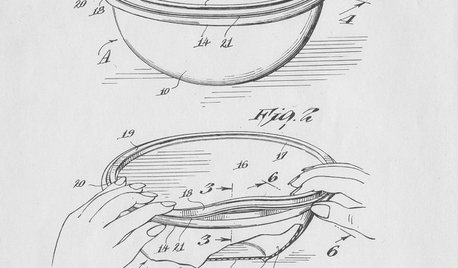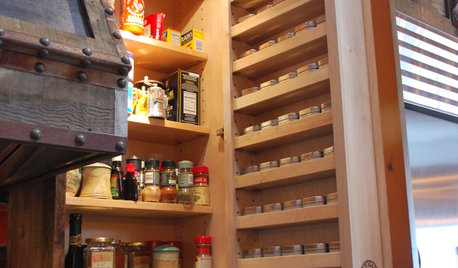bpa?
berrybusy
11 years ago
Related Stories

HEALTHY HOMEGive Your Baby the Healthiest, Safest Nursery Possible
Protect your newborn by choosing nontoxic nursery furniture, bedding, rugs and paint. We give you all the details here
Full Story
DECORATING GUIDESTextile Textbook: Know Your Natural Fibers
Whether you desire fresh linen sheets or a swanky mohair rug, Mother Earth has you covered
Full Story
FEATURESHow Tupperware’s Inventor Left a Legacy That’s Anything but Airtight
Earl S. Tupper — and his trailblazing marketing guru, Brownie Wise — forever changed food storage. His story is stranger than fiction
Full Story
HEALTHY HOMEDetox Your Kitchen for the Healthiest Cooking
Maybe you buy organic or even grow your own. But if your kitchen is toxic, you're only halfway to healthy
Full Story
FARM YOUR YARD14 Crazy Places to Grow Edibles
Some Houzzers may lack ground for gardening, but they’re never short on imagination
Full Story
GARDENING AND LANDSCAPINGSet a Gorgeous Seasonal Party Table Outdoors
Entertain guests with your tablescape as much as your party fare, layering summery plants and bright, textural accessories
Full Story
KITCHEN DESIGN7 Steps to Pantry Perfection
Learn from one homeowner’s plan to reorganize her pantry for real life
Full Story
MATERIALSShould You Use Composite Timber in Your Landscape?
This low-maintenance alternative to wood is made from varying amounts of recycled plastic. Consider it for decks, fences and more
Full Story
KITCHEN DESIGNEasy Green: 10 Small Kitchen Changes to Make Today
Taking small steps in going green can lead to big results over time, and starting in the kitchen is a smart choice
Full Story
LIFEHow Do You Make Your Tea and Coffee in the Morning?
A morning cup is a must for many, and preparation comes in many guises. We look at coffee and tea habits across the Houzz community
Full Story





digdirt2
kriswrite
Related Professionals
New Bedford Landscape Architects & Landscape Designers · Kapaa Landscape Architects & Landscape Designers · Rancho Cordova Landscape Architects & Landscape Designers · Barrington Landscape Contractors · Coeur d'Alene Landscape Contractors · Damascus Landscape Contractors · Elkridge Landscape Contractors · New Braunfels Landscape Contractors · New Cassel Landscape Contractors · Pleasant Grove Landscape Contractors · Wethersfield Landscape Contractors · Boone Roofing & Gutters · La Jolla Roofing & Gutters · Sterling Driveway Installation & Maintenance · Thornton Driveway Installation & MaintenanceRaw_Nature
Linda_Lou
kriswrite
jackieblue
pattypan
2ajsmama
pattypan
pattypan
2ajsmama
pattypan